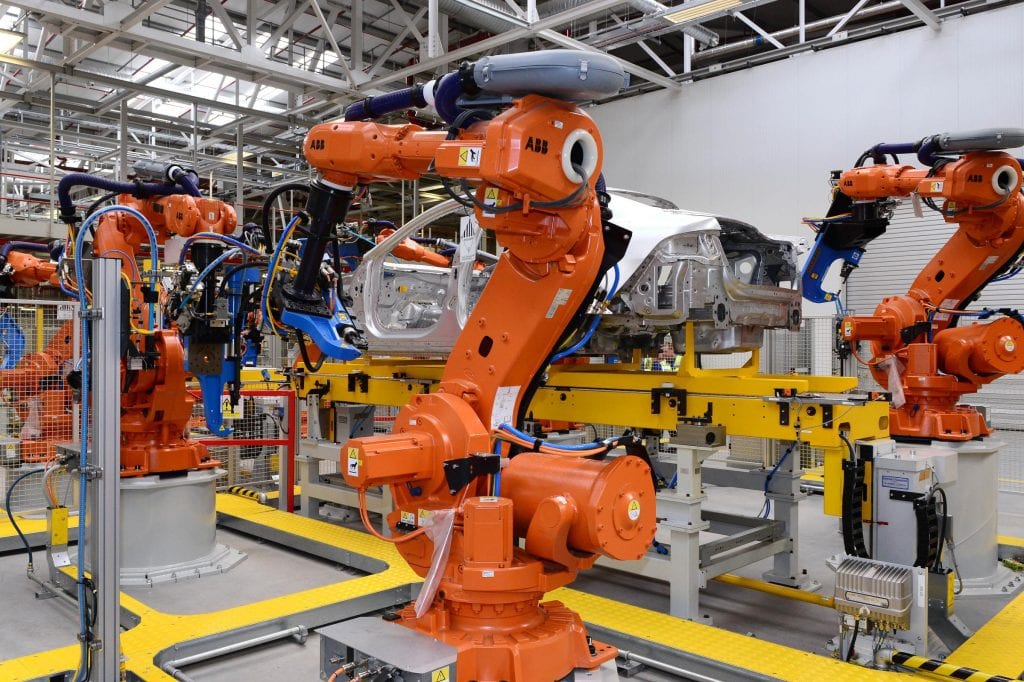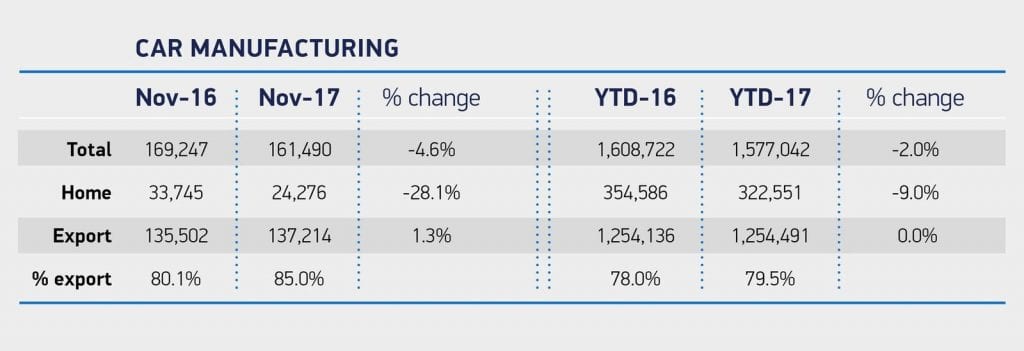 UK car manufacturing fell 4.6% in November, according to figures released by the Society of Motor Manufacturers and Traders (SMMT). 161,490 cars left British factories in the month, driven by overseas orders, which rose 1.3%.
UK car manufacturing fell 4.6% in November, according to figures released by the Society of Motor Manufacturers and Traders (SMMT). 161,490 cars left British factories in the month, driven by overseas orders, which rose 1.3%.
In November, exports reached their highest proportion of output this year at 85.0% but production for the home market continued to falter, falling for the fourth month in a row. It dropped -28.1%, the largest decline in 2017, as consumer confidence decreased and speculation over negative government policies towards diesel affected the market.
Year-to-date, more than 1.5 million cars have rolled off production lines, with nearly eight out of 10 destined for one of 160 global markets. While export volumes remain stable, production for the home market is down -9.0%, resulting in overall output falling -2.0% since January.

Mike Hawes, SMMT Chief Executive, said, “Brexit uncertainty, coupled with confusion over diesel taxation and air quality plans, continues to impact domestic demand for new cars and, with it, production output. Whilst it is good to see exports grow in November, this only reinforces how overseas demand remains the driving force for UK car manufacturing. Clarity on the nature of our future overseas trading relationships, including details on transition arrangements with the EU, is vital for future growth and success.”
Responding to the figures, Avril Webster, head of sales and marketing at AA Cars, said: “Domestic demand for new cars is down for a tenth consecutive month. Such a sizeable drop-off is unprecedented and an indication that a lack of clarity over air quality plans and uncertainty around Brexit is weighing heavily on consumer appetite.
“It’s clear that consumers are crying out for clarity. Anyone who was holding out for such in the Budget will have been sorely disappointed. The Chancellor’s plans to increase the first-year VED rate on diesels that don’t meet the standards for next-generation clean diesels puts even more pressure on consumers and manufacturers in a year that has already dented the market.”




You must be logged in to post a comment.